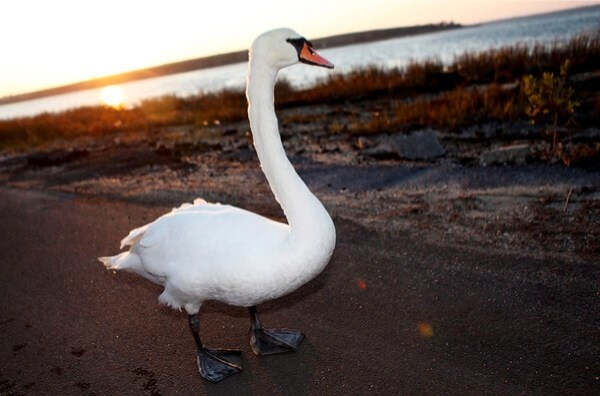By Mark Hallum
State Sen. Tony Avella (D-Bayside) announced hislegislation for the protection of mute swans had been signed by Gov. Andrew Cuomo Tuesday. The bill was passed by the Senate twice as well as the state Assembly, but was vetoed two more times by Cuomo before the birds could get the protection from extermination sought by animal rights and elected officials such as Avella.
In 2013, the Department of Environmental Conservation declared its intention to systematically eradicate the birds by 2025 on the grounds that mute swans are an invasive species brought from Eurasia in the 19th century. According to the state agency, this distinct group of swans are highly territorial and are known to displace other native animals and waterfowl from nesting areas as well as attack small children.
There is currently a mute swan population in Jamaica Bay.
Under Avella’s legislation, the DEC would be required to hold two public hearings before finalizing plans to manage the mute swan population and hold a two-year moratorium on any action. Specific evidence would have to be provided that illustrates damage caused by the birds, and even with evidence the DEC would be required to seek alternatives to euthanasia.
“This is a major victory for the mute swans, as well as other animals who may face similar eradication in the future,” Avella said. “I, and many animal rights organizations and activists, will remain skeptical that such drastic measures are necessary until evidence proves otherwise. Even if the evidence is there, it is a humane and moral imperative to find non-lethal means for controlling their population.”
The DEC accepted public comments on the plan for managing the species and in 2014 released a statement that said tens of thousands of comments had been received from individuals and groups, including the Friends of Animals, American Society for the Prevention of Cruelty to Animals, In Defense of Animals, Goosewatch NYC, Regal Swan Foundation, Humane Society of the United States and Save Mute Swans.
“Since the 1980s we have lobbied in the Northeast area to protect mute swans from nest destruction, egg addling, and hunting, which have all been considered as wildlife management schemes. Governors have been deceived by the agencies that come up with these insidious plans that lack scientific evidence,” said Priscilla Feral, president of Friends of Animals. “We are ecstatic about this victory and that DEC’s hateful attitude towards mute swans has been reversed—it is out of step with the very residents of New York whose tax dollars fund the agency.”
The DEC specified the intent of the management plan by emphasizing that extermination of the mute swans in New York was not on the books. The population in certain locations would be controlled where strain would not be put on natural resources.
“Most of the comments received offered little specific feedback on the draft plan and, in many cases, it seemed that the commenter was unfamiliar with the management actions described in the plan or misunderstood how it would actually be implemented,” a DEC response said.
The management plan was revised in 2015 to minimize numbers downstate, prevent expansion of the species into new areas whether naturally or through catch and release or escape to provide relief to communities and property owners in conflict with the birds, and to offer permits to community organizations that wish to manage the swan population in their area.
.
Reach reporter Mark Hallum by e-mail at mhall



































